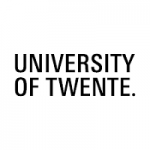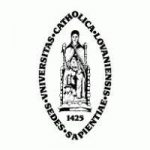
PhD positions on microfluidic microbubbles for functional ultrasound sensing
项目介绍
The MICOMAUS project is a 1.98 M€ project funded by the European Research Council on Sophisticated Microbubble Coating Materials for Functional Ultrasound Sensing.
Phospholipid-coated microbubbles are used as ultrasound contrast agents (UCAs) in contrast-enhanced ultrasound imaging. The contrast enhancement results from their MHz ultrasound-driven volumetric oscillations, which produce a powerful echo. The volumetric oscillation dynamics is governed by resonance, with a resonance frequency that is inversely proportional to the microbubble size. Additionally, the resonance frequency is strongly affected by the viscoelastic properties of the microbubble shell that can be modelled as an infinitely thin membrane with a surface viscosity, resulting in an increased damping, and with a surface elasticity, which increases the resonance frequency. At resonance, the amplitude of oscillation and the resulting echo are at maximum. Also at resonance (or integer multiples or fractions thereof), the echo can contain strong harmonics of the driving frequency on account of the nonlinear rheology of the shell. Today, the harmonic content of the bubble echo is used to discriminate nonlinear bubble echoes from linear tissue echoes and to thereby visualize the perfusion of organs. However, the rich spectral content of the echo has a much larger potential, owing to its sensitivity to the ambient pressure and to whether the bubble is bound to an interface or not, e.g., via targeting ligands incorporated in the bubble shell. As such, bubbles have potential blood pressure and molecular sensing capabilities that reach far beyond their current use as a contrast agent. However, clinically approved UCAs are non-uniform in size (1-10 ?m in diameter) and in shell properties resulting in an ill-defined response that prevents accurate sensing with microbubbles and ultrasound.
The objective of the MICOMAUS project is to achieve a breakthrough in the microbubble field by mastering and controlling bubble formation, acoustic response, and binding functionality to enable high-precision sensing applications of bubbles and ultrasound. In a team of 3 PhD students and 1 postdoc, you will use microfluidics to produce and study the fundamentals of bubble formation, shell rheology, and acoustic bubble response. We will illuminate lipid adsorption, the diffusive processes at play that alter shell conformation, and their coupling to acoustic bubble dynamics in the free field and near a wall. In this project, you will develop highly controlled microfluidic experiments and new characterization methods to measure the rheology of the lipid shell and acoustic scattering under different ambient pressure and bubble-binding conditions. You will be trained to master a broad range of experimental techniques such as ultra-high-speed (fluorescence) imaging at the sub-µs timescale, acoustic scattering and attenuation measurements, confocal imaging, Acoustofluidics, and cleanroom fabrication. Hand in hand with the experiments, you and the team will develop accompanying numerical simulations and theory to test our understanding.
You will be embedded in the BIOS/Lab on a Chip group, which is part of the Max Planck Center Twente for Complex Fluid Dynamics, the J.M. Burgers Research Center for Fluid Mechanics (JMBC), and the MESA+ Institute for Nanotechnology. As such, you are surrounded by world-leading scientists on all aspects of the project, with whom you are encouraged to collaborate. Your direct colleagues are typically active and organize many after-work activities.
YOUR PROFILE
- You have a strong background in (applied) physics, aerospace engineering, mechanical engineering, biomedical engineering, chemical engineering, or in a closely related discipline.
- You are enthusiastic and highly motivated to do a PhD and are driven by curiosity.
- You have experimental experience and are creative in the lab.
- Knowledge on fluid mechanics, microfluidics, microscopy, and experience in image and data analysis are a plus.
- You have strong communication skills, including fluency in written and spoken English.
OUR OFFER
- As a PhD candidate at UT, you will be appointed to a full-time position for four years, with a qualifier in the first year, within a very stimulating and exciting scientific environment;
- The University offers a dynamic ecosystem with enthusiastic colleagues;
- Your salary and associated conditions are in accordance with the collective labour agreement for Dutch universities (CAO-NU);
- You will receive a gross monthly salary ranging from € 2.770,- (first year) to € 3.539,- (fourth year);
- There are excellent benefits including a holiday allowance of 8% of the gross annual salary, an end-of-year bonus of 8.3%, and a solid pension scheme;
- The flexibility to work (partially) from home;
- A minimum of 232 leave hours in case of full-time employment based on a formal workweek of 38 hours. A full-time employment in practice means 40 hours a week, therefore resulting in 96 extra leave hours on an annual basis.
- Free access to sports facilities on campus
- A family-friendly institution that offers parental leave (both paid and unpaid);
- You will have a training programme as part of the Twente Graduate School where you and your supervisors will determine a plan for a suitable education and supervision;
- We encourage a high degree of responsibility and independence, while collaborating with close colleagues, researchers and other staff.
INFORMATION AND APPLICATION
Are you interested in this position? Please send your application via the ‘Apply now’ button below before February 1, 2024 and include:
- An up-to-date detailed CV (resume)
- A short motivation letter of maximum 1-page detailing your background, interests, and your motivation to apply for the advertised position
- An academic transcript of B.Sc. and M.Sc. education, including grades.
- The name and email address of up to three reference people able to provide reference letters if requested.
For more information regarding this position, you are welcome to contact Tim Segers (t.j.segers@utwente.nl)
联系方式
电话: (+31) 53 489 9111相关项目推荐
KD博士实时收录全球顶尖院校的博士项目,总有一个项目等着你!



